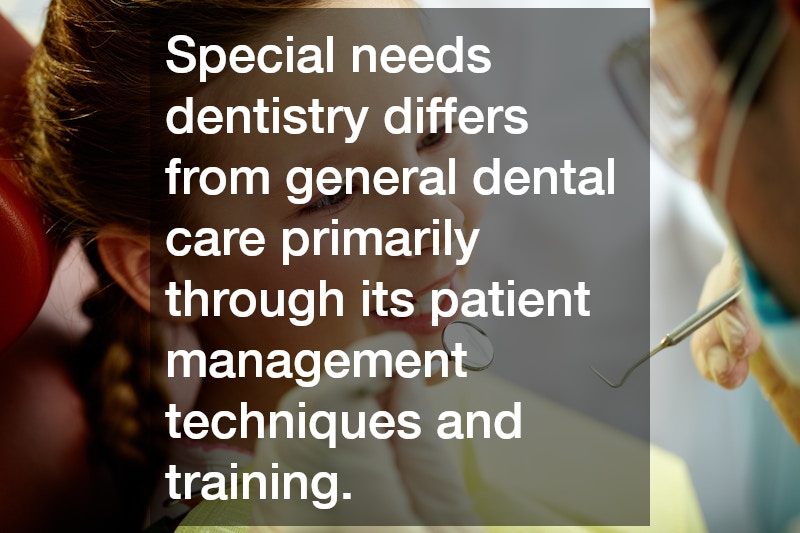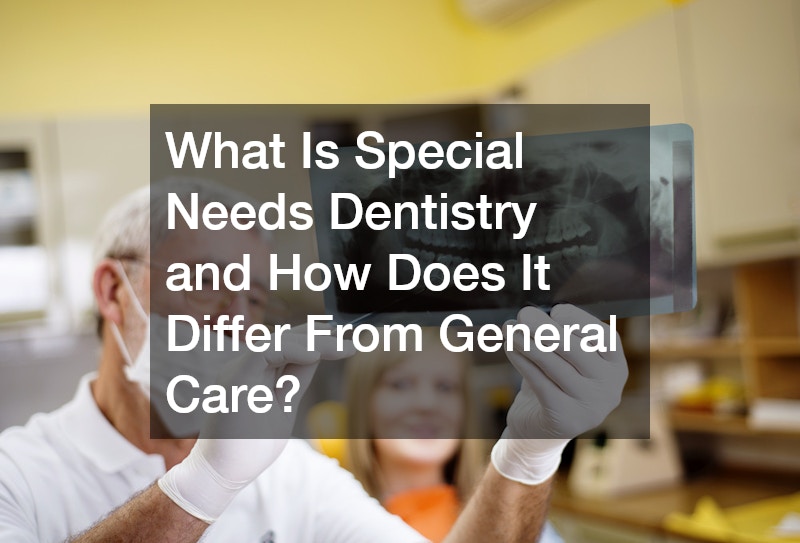
Dentistry is a critical aspect of healthcare that plays a significant role in overall well-being. While general dental care caters to the typical dental health needs of the majority, special needs dentistry in Beckley, WV represents a distinct but crucial specialty within this field. This branch addresses the unique requirements of patients who may have physical, developmental, or cognitive conditions necessitating specialized care.
This article will explore the nuances of special needs dentistry, contrasting it with general dental practices and highlighting its significance in enhancing life quality.
Understanding the differences between special needs dentistry and traditional dental care is essential for those who require tailored dental solutions. Special needs dentistry involves approaches and methodologies specifically designed to accommodate individuals with unique healthcare needs that typical dental practitioners may not be fully equipped to handle. By delving deeper into this specialized field, we can better appreciate the comprehensive nature of dental healthcare available to all individuals, regardless of their specific requirements.
As we advance through this discussion, we will dissect what constitutes special needs dentistry, detailing the distinguishing elements that set it apart from general dental care. We will also examine the benefits inherent in this focused approach, reaffirming the importance of accessible and compassionate dental services for those needing extra care. Ultimately, the goal is to shed light on the holistic and inclusive nature of special needs dentistry and its pivotal role in the dental health landscape.
What Is Special Needs Dentistry?
Special needs dentistry is a targeted area within dental care that focuses on patients who require additional attention due to a variety of physical, medical, or psychological conditions. This includes individuals with disabilities, behavioral issues, or systemic health problems that may complicate the provision of standard dental treatments. The primary purpose of this specialty is to ensure that all patients can access high-quality dental care tailored to their specific conditions, thereby promoting better dental health outcomes.
Patients who commonly benefit from special needs dentistry include those with Down syndrome, autism spectrum disorders, cerebral palsy, and other developmental or acquired conditions that might pose challenges during regular dental visits. Special needs dentists are trained to employ adaptive approaches that address these challenges, enhancing both patient comfort and safety. Techniques may include the use of sedation, modified dental tools, or innovative communication strategies designed to alleviate anxiety and ensure effective treatment execution.
The significance of special needs dentistry cannot be overstated as it directly contributes to the health and quality of life of individuals facing complex health challenges. By offering specialized care solutions, dentists in this field play a critical role in reducing oral health disparities and ensuring equitable access to dental services. This approach underscores the fundamental principle of inclusivity, which is essential in healthcare to support diverse patient populations.
How Does Special Needs Dentistry Differ from General Care?
Special needs dentistry differs from general dental care primarily through its patient management techniques and training. While general dentists are adept at managing typical dental issues, special needs dentists undergo additional training to understand the complexities associated with various conditions such as sensory processing disorders or medical conditions requiring tailored care plans. This specialized training empowers them to provide more nuanced, considerate care that reflects each patient’s unique dental and health requirements.
Treatment plans in special needs dentistry are often more comprehensive and customizable than those found in general practices. Special needs dentists must consider factors beyond traditional dental health, such as the patient’s ability to communicate, cognitive function, and physical mobility, all of which may affect diagnostic and treatment procedures. This results in more carefully crafted plans that address the broader spectrum of needs a patient may have during their dental experience.
Moreover, the environment within which dental care is delivered also distinguishes special needs dentistry from its general counterpart. Clinics offering special needs dentistry are often equipped with adaptive tools and sensory-friendly environments to make dental visits more pleasant and less intimidating for patients who may feel overwhelmed by standard dental facilities. Combined, these differences highlight the adaptability and precision of special needs dentistry in meeting the diverse challenges presented by its patient demographic.
What Are the Benefits of Special Needs Dentistry?
One of the most significant benefits of special needs dentistry is the provision of improved patient outcomes. By focusing on the specific dental and health needs of each individual, special needs dentistry enhances the likelihood of successful treatments and long-term oral health maintenance. This patient-centered approach not only addresses immediate dental issues but also proactively contributes to preventing future complications that could arise due to lack of adequate care.
Enhanced comfort and accessibility are other critical advantages offered by special needs dentistry. By creating a supportive and accommodating environment, patients who may otherwise avoid or experience distress during dental visits are more likely to seek necessary care. The sensitivity and understanding embodied in special needs practices foster a welcoming atmosphere, reducing anxiety for patients and their families and facilitating ongoing, consistent dental care.
The positive impact on the quality of life provided by special needs dentistry extends beyond clinical outcomes. By addressing oral health within the context of overall health and well-being, this specialty plays a vital role in empowering individuals with special needs. Improved oral health can lead to confidence, better communication, and enhanced social interaction, all of which contribute to an enriched quality of life for those served by special needs dental practitioners.
Conclusion
Ultimately, the role of special needs dentistry extends beyond the clinical setting, advocating for equitable healthcare access and enhancing the well-being and dignity of individuals with special needs. It is an indispensable component of a compassionate healthcare system, championing comprehensive care for all, and reaffirming the commitment to provide for those whose requirements may extend beyond the scope of conventional dental practice.

